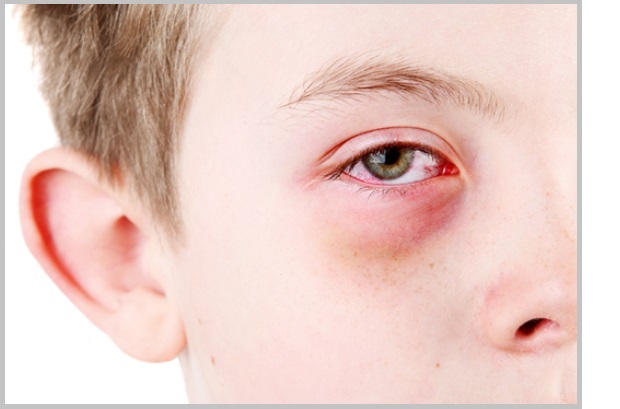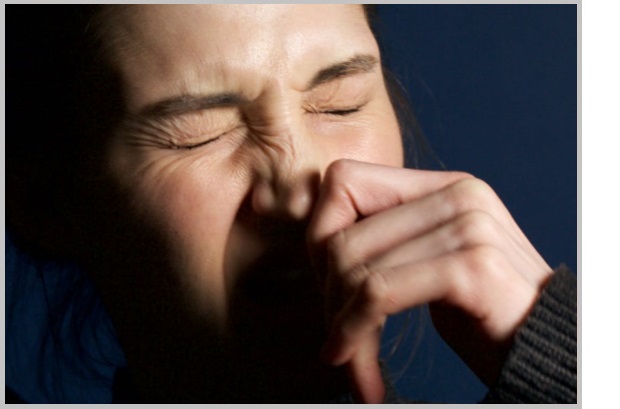 Also called allergic conjunctivitis or ocular allergy, eye allergy occurs when something you are allergic
to irritates the conjunctiva. This is the delicate membrane covering the eye and the inside of the eyelid.
Like all allergies, allergic conjunctivitis starts when the immune system identifies an otherwise harmless
substance as an allergen.
Also called allergic conjunctivitis or ocular allergy, eye allergy occurs when something you are allergic
to irritates the conjunctiva. This is the delicate membrane covering the eye and the inside of the eyelid.
Like all allergies, allergic conjunctivitis starts when the immune system identifies an otherwise harmless
substance as an allergen.
This causes your immune system to overreact and produce antibodies called Immunoglobulin (IgE). These
antibodies travel to cells that release chemicals which cause an allergic reaction. In this case, allergic
reactions include eyes that water, itch, hurt or become red or swollen.
The most common causes of allergic conjunctivitis are seasonal allergens such as pollen and mold spores.
People with seasonal allergic rhinitis (hay fever) normally notice their symptoms worsen when they go
outdoors on days with high pollen counts. Indoor allergens such as dust mites and pet dander can also cause
eye allergies year-round. If you suffer from this type of allergy, you may notice your symptoms worsen
during certain activities such as cleaning your house or grooming a pet. Eye allergy symptoms can be very
annoying. Yet they pose little threat to eyesight other than temporary blurriness. Unlike conditions such
as pink eye, allergic conjunctivitis is not contagious. However, red, itchy, burning and puffy eyes can be
caused also by infections and other conditions that can threaten eyesight.
Eye Allergy Symptoms & Diagnosis:
If your symptoms are related to an eye allergy, chances are you will have problems in both eyes.
Typical symptoms include the following:
- Watery eyes
- Itchiness
- Sensitivity to light
- Redness
- Grittiness
- Eyelid swelling
These symptoms can occur alone or along with allergic rhinitis nasal symptoms. They typically appear shortly after exposure to the allergen. Symptoms resulting from seasonal outdoor allergens tend to be worse than if your symptoms are due to indoor allergens such as dust mites or pet dander. Symptoms may be reduced if you are taking allergy medications such as antihistamines, which suppress the allergic reaction. The first step toward relief from annoying eye allergy symptoms is a proper diagnosis.
 Allergies primarily affect the middle ear. As you can see, the middle ear has a drainage tube or pressure release valve
called the eustachian (you-STAY-shun) tube. If this tube is clogged with mucus or its opening is blocked by allergy swelling,
then pressure and fluid can build up in the middle ear. This gives us the sensation of being down a well, having the need to
“pop” our ears frequently, and can result in diminished hearing. Fluid build-up also creates a good environment for infection
to occur. Middle ear infections, called otitis media or OM, occur commonly in early childhood and are a frequent reason for
antibiotic treatment and missed school days. Allergies are a well recognized cause for recurrent OM and kids who have more
than their share of middle ear infections should be allergy tested
Allergies primarily affect the middle ear. As you can see, the middle ear has a drainage tube or pressure release valve
called the eustachian (you-STAY-shun) tube. If this tube is clogged with mucus or its opening is blocked by allergy swelling,
then pressure and fluid can build up in the middle ear. This gives us the sensation of being down a well, having the need to
“pop” our ears frequently, and can result in diminished hearing. Fluid build-up also creates a good environment for infection
to occur. Middle ear infections, called otitis media or OM, occur commonly in early childhood and are a frequent reason for
antibiotic treatment and missed school days. Allergies are a well recognized cause for recurrent OM and kids who have more
than their share of middle ear infections should be allergy tested
Signs & Symptoms:
- Earache
- Vomiting
- Nausea
- Ear Drainage
- Fever
- Dizziness
- Loss of Balance
- Feeling of Pressure or Fullness
- Loss of Hearing
- Difficulty Hearing
 Allergic rhinitis is a group of symptoms affecting the nose. These symptoms occur when you breathe in something you
are allergic to, such as dust, dander, insect venom, or pollen.
Allergic rhinitis is a group of symptoms affecting the nose. These symptoms occur when you breathe in something you
are allergic to, such as dust, dander, insect venom, or pollen.
This article focuses on allergic rhinitis due to outdoor triggers, such as plant pollen. This type of allergic
rhinitis is commonly called hay fever
Causes, incidence, and risk factors:
An allergen is something that triggers an allergy. When a person with allergic rhinitis breathes in an allergen
such as pollen or dust, the body releases chemicals, including histamine. This causes allergy symptoms.
Hay fever involves an allergic reaction to pollen. A similar reaction occurs with allergy to mold, animal dander,
dust, and other allergens that you breathe in. The pollens that cause hay fever vary from person to person and from
area to area. Tiny, hard-to-see pollens often cause hay fever.
Examples of plants that cause hay fever include:
- Trees
- Grasses
- Ragweed
The amount of pollen in the air can affect whether hay fever symptoms develop. Hot, dry, windy days are more likely
to have increased amounts of pollen in the air. On cool, damp, rainy days most pollen is washed to the ground.
Some disorders may be linked to allergies. These include eczema and asthma. Allergies are common. Your genes and
environment may make you more likely to get allergies. Allergies often run in families. If both your parents have
allergies, you are likely to have allergies too. The chance is greater if your mother has allergies.
Symptoms that occur shortly after you come into contact with the substance you are allergic to may include:
- Itchy nose, mouth, eyes, throat, skin, or any area
- Problems with Smell
- Runny Nose
- Sneezing
- Teary Eyes
Symptoms that may develop later include:
- Stuffy nose (nasal congestion)
- Coughing
- Clogged ears and decreased sense of smell
- Sore Throat
- Teary Eyes
- Dark circles under the eyes
- Puffiness under the eyes
- Fatigue and irritability
- Headache
People with allergic rhinitis often have allergy symptoms that also involve the eyes
 It has been estimated that as many as 30% of people have a hiatal hernia or malfunctioning lower esophageal
sphincter (LES). The LES is a muscular “valve” that is supposed to keep highly acidic stomach contents from
going backward into the esophagus. Persons wish one of these conditions might note frequent heartburn or acid
belching. However not everyone has these obvious symptoms.
It has been estimated that as many as 30% of people have a hiatal hernia or malfunctioning lower esophageal
sphincter (LES). The LES is a muscular “valve” that is supposed to keep highly acidic stomach contents from
going backward into the esophagus. Persons wish one of these conditions might note frequent heartburn or acid
belching. However not everyone has these obvious symptoms.
When a person with acid reflux lies down at night, acid may travel up to the level of the throat and even come
into contact with parts of the larynx. Because this occurs mainly at night during sleep, the person is often
unaware that this is happening.
One or many of the following may symptoms may result:
- Chronic sore throat: usually worse in the morning and gets better as the day progresses.
- Excessive morning “phlegm”
- Chronic, irritative cough
- A sensation of needing to continually clear one’s throat
- A particularly low or husky voice in the morning requiring prolonged “warm-up” if one is a singer
TREATMENT MEASURES
1. Avoid caffeine (soda, coffee, tea, chocolates) alcohol, spicy foods, cigarette smoking, fatty foods, and mints.
These substances may increase stomach acidity and may also make the LES function poorly. Use decaffeinated drinks.
2. Eat the last meal/snack of the day no fewer than 4 hours before going to sleep. In addition, try to eat the
heavier meals at noon and lighter ones in the evening. The purpose of these suggestions is to have the stomach
relatively empty when one lies down so that there is not a lot of “back pressure” to push the stomach contents up
the esophagus and into the throat.
3. Use 4-6 inch bed blocks under the head posts of the bed. Old books or wooden blocks work well for this purpose.
This procedure puts the entire bed on a slight downwards slant from head to foot. You may need a pillow under your
knees to keep yourself from sliding down. Gravity assists in keeping the stomach acid where it belongs.
4. You may be prescribed an acid-reducing medicine such as Prilosec OTC, Prevacid, Nexium, Aciphex, or Protonix.
Take these medications one hour before breakfast. Treatment of this problem will usually require a 3 month treatment
before the medication can be decreased or discontinued. Make sure to refill your medications and continue the treatment.
Use a bedtime dose of a simple antacid such as Gaviscon or Maalox in order to reduce acidity.
5. Weight loss: It is recommended that a trial of the above measures be continued for a minimum 3-4 weeks and that none
of the above treatments are omitted.

